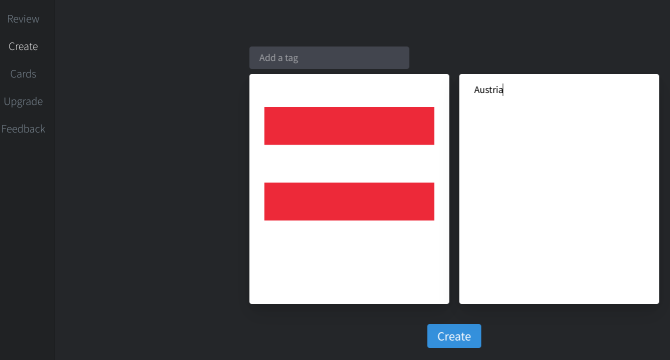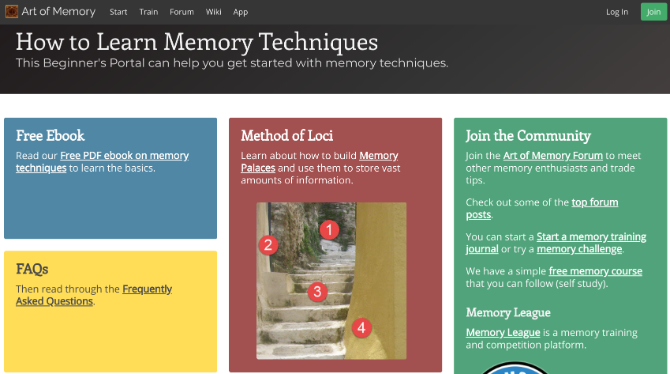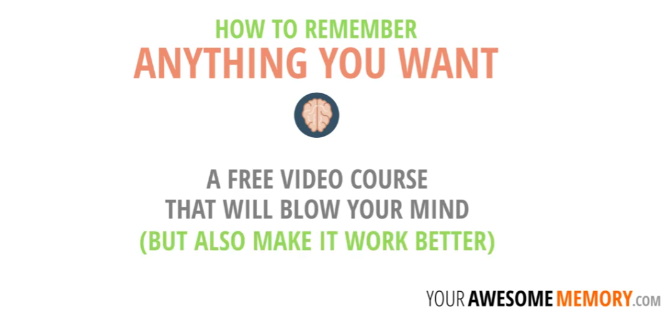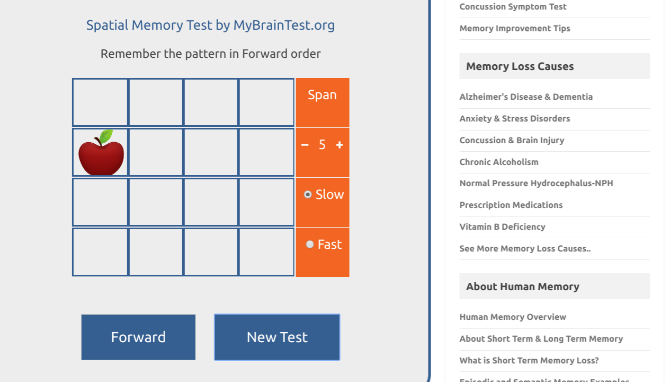The human mind can't stand up to the constant barrage of new information we get in the 21st century. It's no wonder we can't remember a lot of what we read, people we meet, sounds we hear. But these recall tools and brain hacks can help you level-up your memory.
Not many people know that memory relies on techniques. There is science behind how our brain handles new information, and if you learn the techniques, you can retain more of that information. Needless to say, none of these will magically change your mind in a day. But practice, and you'll astound others about how well you can remember what happened.
1. FlipToMind (Web): Custom Flash Cards With Spaced Repetition
FlipToMind combines flash cards with the spaced repetition memory technique to revise and repeat what you need to remember. It supports a range of input like text, images, and also markdown, and works in any browser, desktop or mobile.
To create a card, you have to put a cue in one box and the answer in the other. You have to copy-paste full image URL links to add a picture to a card. Once you've created a stack, test yourself.
The app will cycle through your cues. Say the answer in your head and flip the card. Mark it as "knew it" or "failed" so that the app knows which cards you have trouble with. Using a smart algorithm, FlipToMind then figures out which cards you are likely to forget soon, and creates custom tests.
This is among the simplest flash card web apps based on spaced repetition. The free version of FlipToMind lets you create 25 cards. You can upgrade to unlimited cards for one dollar per month.
2. Mochi (Windows, macOS, Linux): Feature-Packed Flash Cards App
Mochi also uses the spaced repetition technique. But this isn't a web app, so you can only access it on the desktop that you install the software on.
You can create new cards that support Markdown, text, and emojis too, but not images. Mochi has three features that distinguish it from regular flash cards.
First, you aren't restricted to a single answer. In a physical flash card, you could only have the question on one side and the answer on the other. Mochi lets you add multiple answers, or hints, which cascade in steps. It's a level-up for regular cards.
Second, Mochi allows you to hide words in the question you are setting up. The "Cloze" feature will simply blur words from a large chunk of text, asking you to fill in the blanks.
And finally, Mochi lets you add detailed notes for your studies. You can then link cards to the notes, or make cards from notes. It's an effective system to remember what you needed to, and also learn more in case you forgot.
The app couple these two methods with an algorithm that tracks the cards and boosts retention with spaced repetition. You can add an unlimited number of decks and cards to Mochi but can't access it on your phone or a different computer.
Download: Mochi for Windows | macOS | Linux (Free)
3. Art of Memory (Web): Learn to Build a Memory Palace
If you want to learn how to build Sherlock Holmes' "memory palace" depicted in one episode of the BBC series, then visit Art of Memory. This website is a repository of various memory tools, including the simplest free beginner's guide to how a memory palace works.
The step-by-step Memory Technique wiki takes you through the fundamentals of the Method of Loci (i.e. the technique's original name). Through a scene from a village, it illustrates how to remember the first 12 elements of the periodic table. Memory palaces are often recommended as a useful memory tool for students.
The main website has much more to offer than this one method alone. In fact, it covers pretty much every memory technique you'll come across.
Register for the website to get a free 28-page beginner's ebook for all major memory techniques, which also answers common questions. You also gain access to the forums, which has an active community of experts and amateurs willing to help in your journey.
4. Your Awesome Memory (Web): Free Video Course to Remember Anything
Memory expert Bill Powell's website is full of articles and resources related to memory. Instead of focusing on one technique, Powell stresses on using different methods to remember different things. And he teaches you how.
The best way to start is with the free video course, for which you'll have to sign up for the newsletter. These aren't five-minute videos, each of the four-part video course is over half an hour in length. Powell touches upon the four essential memory tools, what purpose each serves, and how to use the tools to remember names.
Go through the course over a weekend and put the learnings into practice. If you have the time, Powell's articles are worth reading too, especially on topics like why flash cards fail or how you can remember more of what you read.
5. Memory Health Check (Web): Free Memory Loss Tests
Now that you know how to improve your memory, it might be worthwhile to check just how good it is. Memory Health Check offers a few free tests to see if you suffer from any memory loss.
The website gives you two types of tests: short term memory tests and working memory tests. In the short term memory tests, you will be shown a series of pictures of nature or animals. You have to tap the picture or the spacebar key every time an image is repeated.
The working memory tests are of two types. The digit span test shows you a series of digits (up to 10) at different speeds, and then you need to type out the full number. The spatial memory test shows you an object in different squares of a 4x4 grid. Remember the sequence and replicate it.
Note: These are basic tests to check a regularly functioning mind. If you seek clinical tests or think you might have a mental issue, please seek the opinion of a professional medical practitioner.
Other Ways to Improve Your Memory
Memory and recall are often a function of physiological conditions. Studies have shown that your memory will automatically improve if you are eating healthy, exercising regularly, and getting enough sleep.
But even if you are doing those steps, apps can help. We are bombarded with so much data in this information age, why not let it also aid in recollection? Apart from the aforementioned websites and apps, these tools can improve memory and recall. In fact, there's an app dedicated to helping you remember people's names.





